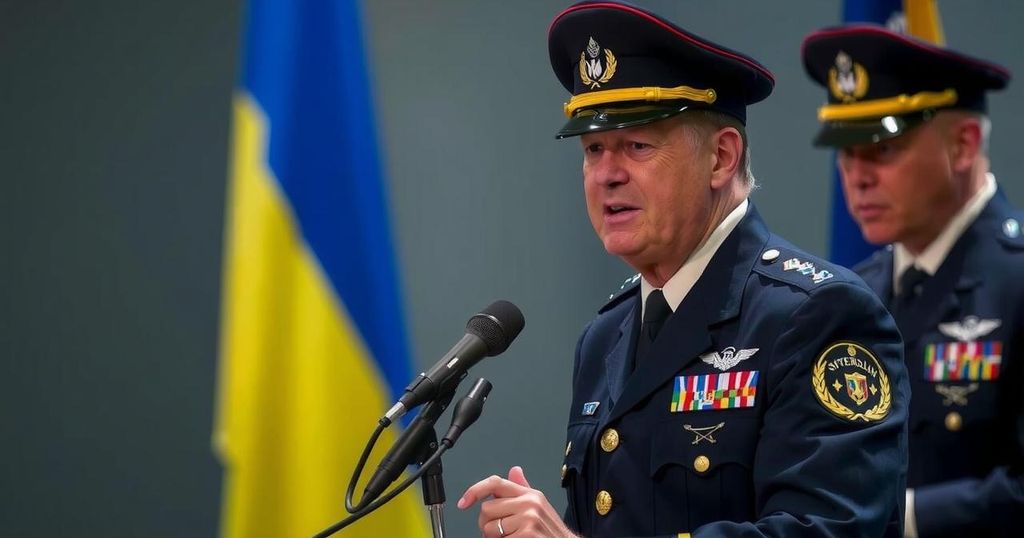World news
ASIA, BORIS JOHNSON, BUDAPEST, CHINA, EUROPE, EUROPE/ASIA, FINANCIAL TIMES, FOREIGN AFFAIRS, HUNGARY, INTERNATIONAL RELATIONS, IRAN, JOE BIDEN, MEXICO, MILITARY SUPPORT, NATO, NORTH AMERICA, NORTH KOREA, PEACE NEGOTIATIONS, RUSSIA, RUSSIA-UKRAINE WAR, STARMER, TELEGRAPH, THE FINANCIAL TIMES, THE TELEGRAPH, UK, UKRAINE, UNITED STATES, US, WAR, ZE
Fatima Khan
0 Comments
NATO Chief Warns Trump Against Weak Ukraine Peace Deal Amid Global Security Concerns
NATO Secretary-General Mark Rutte has cautioned President-elect Donald Trump that a weak peace deal with Russia regarding Ukraine could pose a serious security threat by emboldening authoritarian regimes like China, Iran, and North Korea. He emphasized the need for strong support for Ukraine to deter these global adversaries, as discussions of the war’s resolution continue amidst shifting U.S. foreign policy priorities.
Mark Rutte, the NATO Secretary-General, has issued a warning to US President-elect Donald Trump regarding the potential consequences of enforcing a hastily constructed peace agreement with Russia concerning Ukraine. Rutte emphasized that such a deal, which does not offer robust support to Ukraine, could not only jeopardize European security but also embolden hostile nations such as China, Iran, and North Korea. He articulated his concerns to The Financial Times, highlighting the military and economic cooperation among these authoritarian regimes.
Rutte stated, “We cannot have a situation where we have Kim Jong-un and the Russian leader and Xi Jinping and Iran high-fiving because we came to a deal which is not good for Ukraine.” He pointed out that this kind of agreement would ultimately result in heightened security threats to both Europe and the United States. His remarks came in light of a meeting held on 23 November between Trump and his foreign policy advisors, where such strategic concerns were contemplated.
Meanwhile, on 2 December, UK Prime Minister Keir Starmer acknowledged that a negotiated settlement would likely conclude the Russo-Ukrainian conflict, coinciding with President Joe Biden’s approval of a new military aid package for Ukraine. Trump’s aides have indicated their belief that the war is primarily a European concern and are advocating for a strategic redirection towards China and Iran in U.S. foreign policy discussions.
In the broader context, Ukraine has made clear that it seeks NATO membership as a non-negotiable element following the shortcomings of the Budapest Memorandum. Ukrainian President Volodymyr Zelenskyy has urged for the inclusion of occupied territories in any potential membership discussions. Additionally, reports have emerged indicating that Russia has utilized North Korean ballistic missiles in its operations against Ukraine. Discussions continue regarding the potential role of UK troops in bolstering Ukraine’s border defense under a possible ceasefire arrangement, reflecting the ongoing geopolitical complexities of the region.
The geopolitical landscape surrounding the Russo-Ukrainian conflict has evolved significantly, with NATO and Western nations contemplating appropriate responses to Russian aggression. The strength and unity of NATO have become crucial in deterring adversaries, particularly as nations like China, Iran, and North Korea form closer alliances. The strategic dialogues around Ukraine’s future, especially regarding NATO membership, emphasize the necessity to maintain a strong front against authoritarian regimes that could exploit any perceived weaknesses in Western solidarity.
In conclusion, Mark Rutte’s warning underscores the potential implications of a weak peace agreement regarding Ukraine, which could embolden authoritarian powers like China, Iran, and North Korea. With the backdrop of ongoing military assistance to Ukraine and the insistence on strong NATO support, it remains imperative for Western leaders to carefully consider the strategic ramifications of their decisions in this volatile situation.
Original Source: euromaidanpress.com




Post Comment